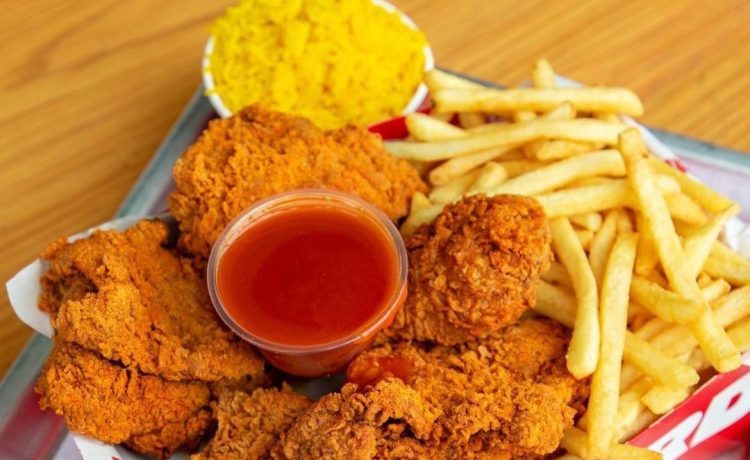In a rapidly evolving food industry, adaptability and quick decision-making are essential for any brand aiming to capture new markets. Bon Bird Dubai’s recent expansion into Pakistan after KFC and McDonald’s Boycott is a perfect example of how seizing the right moment can turn challenges into opportunities. Amidst the ongoing boycott of international fast-food giants like KFC and McDonald’s, Bon Bird Dubai has identified a golden opportunity to introduce its unique fried chicken offerings to Pakistani consumers, who are currently seeking variants that align with their values and preferences.
Understanding the Market Dynamics | KFC and McDonald’s Boycott
Pakistan is a market with a profound love for fried chicken, with brands like KFC having dominated the fast-food sector for decades. However, the recent boycott of KFC and McDonald’s, driven by socio-political sentiments, has left a notable gap in the market.
This boycott presents a challenge for consumers who are now looking for alternative fried chicken brands that match the quality, taste, and ease offered by these global giants.
Recognizing this shift in consumer behavior, Bon Bird Dubai made the tactical decision to enter the Pakistani market. The brand aims to position itself as a quality-driven, customer-centric alternative to the global brands currently facing backlash. With a unique blend of Middle Eastern flavors and a commitment to high-quality ingredients, Bon Bird Dubai is betting on its ability to win over a weighty portion of the market share left by the boycotted brands.
Strategic Timing and Market Entry
Bon Bird Dubai’s entry into Pakistan is both timely and strategic. By entering the market during a period of consumer dissatisfaction with existing options, the brand is positioning itself as a fresh and appealing alternative. Its marketing strategy focuses on highlighting its unique product offerings, including a variety of fried chicken flavors that are not only delicious but also distinct from what Pakistani consumers have traditionally experienced.
The brand’s entry strategy involves leveraging both online and offline channels. It has launched a digital marketing campaign tailored to the preferences of the younger, tech-savvy Pakistani demographic. Social media platforms like Instagram and TikTok are being used to create buzz around the brand’s launch, featuring engaging content that showcases its unique flavors and preparation methods. Simultaneously, Bon Bird
Dubai is focusing on building partnerships with local food delivery services to ensure its products are easily accessible to consumers across major Pakistani cities.
Localized Approach and Customer-Centric Innovation
One of the critical elements of Bon Bird Dubai’s strategy is its confined approach. Unlike many global brands that enter new markets with a one-size-fits-all model, Bon Bird is
eager to adapt its offerings to local tastes. It has introduced a range of spices and flavor profiles specifically served to the Pakistani palate. This strategy not only sets it apart
from the contest but also shows a deep understanding of the local market.
Furthermore, Bon Bird is investing in customer-centric novelty by incorporating feedback from local consumers to refine its menu offerings continuously. The brand is also exploring options to include popular local dishes alongside its fried chicken, creating a unique fusion that could appeal to a broader audience. This dynamic approach assures that Bon Bird remains relevant and competitive in a rapidly shifting market landscape.

A Glimpse at Kabab Jee’s Fried Chicken Launch
Bon Bird is not the only brand utilizing the opportunity created by the boycott. Kabab Jee’s, a popular local chain known for its traditional grilled dishes, has also made a
confident initiative into the fried chicken market. Recognizing the demand for alternative options, Kabab Jee’s introduced its own line of fried chicken, crafted with a blend of
local spices and flavors.
Kabab Jee’s entry strategy focuses on promoting its fried chicken as a locally-sourced, high-quality alternative. The brand emphasizes its commitment to using fresh,
locally-sourced ingredients, which resonates well with Pakistani consumers who prioritize both quality and national support. This move not only broadens Kabab Jee’s product offerings but also helps it attract a wider audience, including those looking for local brands to support amid the ongoing boycott.
Conclusion: Navigating the New Market Landscape
Both Bon Bird Dubai and Kabab Jee’s have effectively turned the challenges posed by the boycott of KFC and McDonald’s into significant growth opportunities. Bon Bird
Dubai’s market entry strategy, focused on understanding local tastes and leveraging strategic marketing, is set to redefine the fried chicken landscape in Pakistan.
Meanwhile, Kabab Jee’s capitalizes on its local heritage and reputation to attract consumers seeking quality and authenticity.
As these brands continue to expand and innovate, the Pakistani fast-food market is likely to see a surge in new flavors and experiences, catering to a diverse and evolving consumer base. In the end, turning challenges into opportunities has never been more critical, and both Bon Bird and Kabab Jee’s are leading the way in redefining what it means to serve up great fried chicken in Pakistan.







